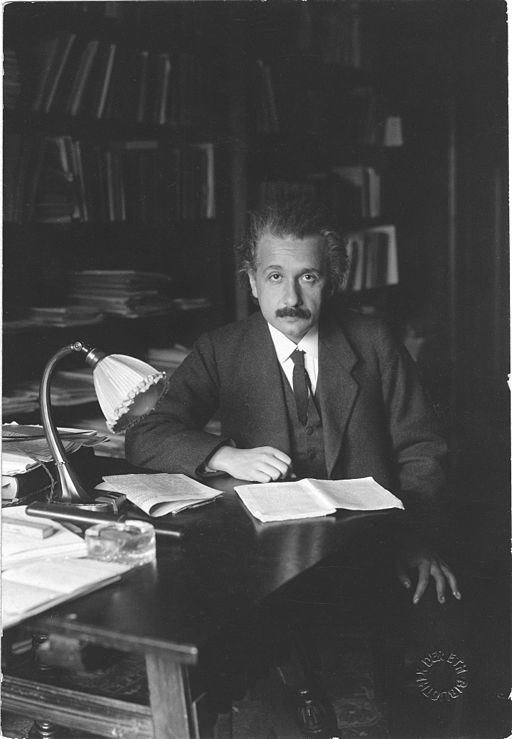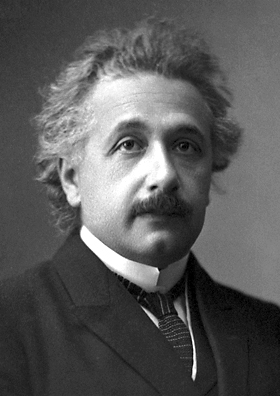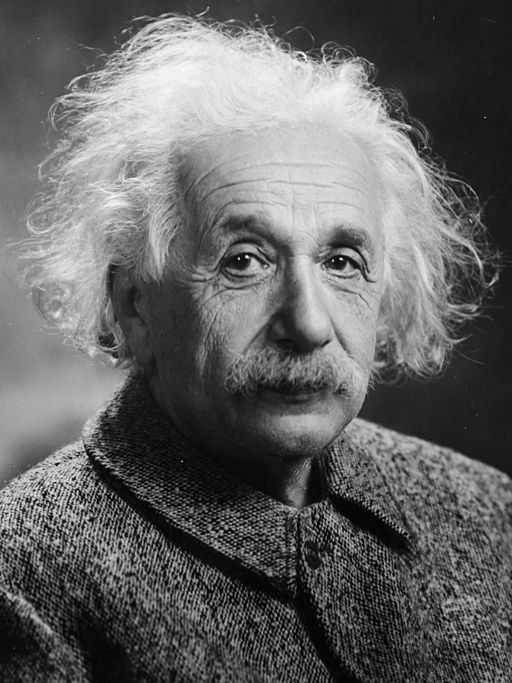 Albert Einstein sits in his study preparing to shock the world with an amazing new scientific breakthrough.https://commons.wikimedia.org/wiki/File:Albert_Einstein_photo_1920.jpg“The value of a man should be seen in what he gives and not in what he is able to receive” (Einstein). Even though much of Albert Einstein’s life was focused on helping people understand and overcome their problems, most of the people around him focused their lives on themselves rather than helping others. Einstein was very different; he believed in helping others: “Try not to become a man of success, but rather try to become a man of value” (Einstein). Being a person of success is not the same as being a person of value, for a person of value is someone who helps others in society and therefore is valuable to society. This idea of value leads to discussing what we as a society consider a hero, because having value is probably one of the most important characteristics of being a hero. Aside from having value in society, one major distinctive characteristic of a hero is the willingness to sacrifice for the greater good of society. This idea of heroism can be seen in everyday people, like our parents, teachers and coaches who care for us and protect us unconditionally while making sacrifices for us everyday. A true hero does not seek or need notoriety or power in return. In fact, each one of us has what it takes to be an everyday hero, but what separates us from being a hero like Einstein, is the enormity of what he did for humanity and the degree of the sacrifices he made for us.
Albert Einstein sits in his study preparing to shock the world with an amazing new scientific breakthrough.https://commons.wikimedia.org/wiki/File:Albert_Einstein_photo_1920.jpg“The value of a man should be seen in what he gives and not in what he is able to receive” (Einstein). Even though much of Albert Einstein’s life was focused on helping people understand and overcome their problems, most of the people around him focused their lives on themselves rather than helping others. Einstein was very different; he believed in helping others: “Try not to become a man of success, but rather try to become a man of value” (Einstein). Being a person of success is not the same as being a person of value, for a person of value is someone who helps others in society and therefore is valuable to society. This idea of value leads to discussing what we as a society consider a hero, because having value is probably one of the most important characteristics of being a hero. Aside from having value in society, one major distinctive characteristic of a hero is the willingness to sacrifice for the greater good of society. This idea of heroism can be seen in everyday people, like our parents, teachers and coaches who care for us and protect us unconditionally while making sacrifices for us everyday. A true hero does not seek or need notoriety or power in return. In fact, each one of us has what it takes to be an everyday hero, but what separates us from being a hero like Einstein, is the enormity of what he did for humanity and the degree of the sacrifices he made for us.
So, how did someone who was unable speak correctly until the age of nine, become an icon and one of the most well-known and influential people in our society? Much of who Einstein is came from his love of reading and his love for math and science. Einstein was born in Ulm, Germany on March 14, 1879 where he was raised in a Jewish, middle-class family with his parents and younger sister. Einstein lived a somewhat normal childhood except for the fact that he had trouble with his speech until age nine and the fact that he sat alone in his room studying as much as he could about math and physics. When he was around sixteen years old, Einstein mastered every single high-school math course, and he even went to college to try math there. He actually failed his first entrance exam and had to wait at a smaller school called Kantonsschule located in the town of Aarau. He stayed there for two years before passing the exam to get into Eidgenössische Polytechnische Schule where he studied and learned about physics until he became widely known. Through his teaching, Einstein started giving back to his community by sharing his knowledge about physics and his life’s work: the theory of relativity. Albert Einstein absolutely deserves to be considered a hero because of his selfless contributions to humanity through his scientific breakthroughs and through his intelligence that paved the way to a brighter and better future.
 Albert Einstein wins the Nobel Prize in 1921!https://commons.wikimedia.org/wiki/File:Albert_Einstein_(Nobel).pngMost people have probably been selfless at one time or another, whether it be volunteering, donating money to charity, or just putting your needs before someone else's. Selflessness is an important characteristic for a hero to have, but not all acts of selflessness make someone a hero. Albert Einstein, after coming up with some of his incredible theories wanted to give back to the world by teaching the next generation about how his theories worked: “ ...he entered the Swiss Federal Polytechnic School in Zurich to be trained as a teacher in physics and mathematics”( Nobel 1). He wanted to become a teacher in the area that he spent his entire life learning just so the younger generation could have a more in-depth understanding of the world. Einstein is selfless because he wanted the next generation to understand the complexity of his newfound knowledge, and instead of keeping to himself he shared it with anyone who wanted to understand it, which is why he is considered a hero. Einstein was not only sharing his information with his students, he was sharing his knowledge: “Information is not knowledge” (Einstein). Knowing something and knowing what to do with that something are two completely different things. Einstein was not just teaching his theorems, but teaching the students how to apply them to their lives as well as the future. This action shows how he was truly being selfless because he was not only doing this to get his ideas out but he was doing this to help his students understand the world and its problems so that one day they could hopefully fix the all the problems that faced humanity.
Albert Einstein wins the Nobel Prize in 1921!https://commons.wikimedia.org/wiki/File:Albert_Einstein_(Nobel).pngMost people have probably been selfless at one time or another, whether it be volunteering, donating money to charity, or just putting your needs before someone else's. Selflessness is an important characteristic for a hero to have, but not all acts of selflessness make someone a hero. Albert Einstein, after coming up with some of his incredible theories wanted to give back to the world by teaching the next generation about how his theories worked: “ ...he entered the Swiss Federal Polytechnic School in Zurich to be trained as a teacher in physics and mathematics”( Nobel 1). He wanted to become a teacher in the area that he spent his entire life learning just so the younger generation could have a more in-depth understanding of the world. Einstein is selfless because he wanted the next generation to understand the complexity of his newfound knowledge, and instead of keeping to himself he shared it with anyone who wanted to understand it, which is why he is considered a hero. Einstein was not only sharing his information with his students, he was sharing his knowledge: “Information is not knowledge” (Einstein). Knowing something and knowing what to do with that something are two completely different things. Einstein was not just teaching his theorems, but teaching the students how to apply them to their lives as well as the future. This action shows how he was truly being selfless because he was not only doing this to get his ideas out but he was doing this to help his students understand the world and its problems so that one day they could hopefully fix the all the problems that faced humanity.
Many people keep their intelligence for themselves to benefit from it, while some people like Albert Einstein use their intelligence to help shape the world and to share help their ideas with everyone. Einstein devoted his entire life to science so that he could create theories that everyone around the world could use to better understand the world around us as well as the universe. Even when his final years were approaching, Einstein still continued to develop his theories so that we could use them for our benefit: “Einstein devoted his efforts for the remaining years of his life to the search for a unified field theory, a single theory that would encompass all physical fields, particularly gravitation and electromagnetism” (World of Physics). Einstein cared about his research, and about getting it out to the people more than anything; he cared enough that he was even still doing research when he was dying. His ability to care for the world, even on his deathbed, is what makes him a hero as it shows how he was giving what he spent his entire life on, away to everyone, so that we as a society could become more effective. If you use electricity you could thank Einstein, for he created the laws that allow electromagnets to create electricity: (Magnetism is a relativistic effect, and if you use electricity you can thank relativity for the fact that generators work at all” (Live Science). Einstein helped to set the foundation for the modern age which is dominated by computers and the internet which all rely on his laws of magnetism and relativity. If he had kept all of this to himself he could have made an unfathomable amount of money, but he decided that everyone should be able to use it for free. He sacrificed his potential fortune, and himself, so that we could advance equally and in doing so demonstrated his great intelligence. When someone that shares their intelligence with the entire world, just so humans could become a more advanced and equal species, they then should deserve to be called a hero.
 Albert Einstein in 1947https://commons.wikimedia.org/wiki/File:Albert_Einstein_Head.jpgThroughout his life, Einstein was a great role model and lived by the heroic traits of selflessness and intelligence that helped pave the way to the future. He demonstrated selflessness when he willingly gave the world his ideas and everything that he dedicated his life to uncovering. He also demonstrated intelligence by creating theorems and formulas based on, the physical aspects of many objects so that we could advance our technology and make the world better place for everyone. “He was not a child prodigy; in fact, he was unable to speak fluently at age nine” (Encyclopedia of World Biography). Even though he did not come from the best childhood he was still able to make a positive difference in all of the lives of everyone. He was able to share with them his knowledge and way of life, and inspired me to be creative and to think outside of the box, for he picked out what he liked to do the most and kept on doing it until he died. For example, I would not be the science loving person if it was not for Einstein, for he inspired me to be creative and observe my surroundings. Even when he could not figure out an answer, he tried looking at it in a different light, which we all do on a daily basis. He did not do it for money or fame, but for the good of the world as well as the betterment of mankind. He lived for the discoveries of physics and for the students whom he taught. He taught me to follow my dreams, and that no matter where you come from, you can always make a difference no matter how big or how small. Every one of us is not much different from the heroes that we honor, because the only difference between us and them is that they act on the problems that we avoid. No matter who you are you can make a difference, so just ask yourself this, what are you waiting for?
Albert Einstein in 1947https://commons.wikimedia.org/wiki/File:Albert_Einstein_Head.jpgThroughout his life, Einstein was a great role model and lived by the heroic traits of selflessness and intelligence that helped pave the way to the future. He demonstrated selflessness when he willingly gave the world his ideas and everything that he dedicated his life to uncovering. He also demonstrated intelligence by creating theorems and formulas based on, the physical aspects of many objects so that we could advance our technology and make the world better place for everyone. “He was not a child prodigy; in fact, he was unable to speak fluently at age nine” (Encyclopedia of World Biography). Even though he did not come from the best childhood he was still able to make a positive difference in all of the lives of everyone. He was able to share with them his knowledge and way of life, and inspired me to be creative and to think outside of the box, for he picked out what he liked to do the most and kept on doing it until he died. For example, I would not be the science loving person if it was not for Einstein, for he inspired me to be creative and observe my surroundings. Even when he could not figure out an answer, he tried looking at it in a different light, which we all do on a daily basis. He did not do it for money or fame, but for the good of the world as well as the betterment of mankind. He lived for the discoveries of physics and for the students whom he taught. He taught me to follow my dreams, and that no matter where you come from, you can always make a difference no matter how big or how small. Every one of us is not much different from the heroes that we honor, because the only difference between us and them is that they act on the problems that we avoid. No matter who you are you can make a difference, so just ask yourself this, what are you waiting for?
Works Cited
"Albert Einstein." Encyclopedia of World Biography, Gale, 1998. Biography In Context, https://link.galegroup.com/apps/doc/K1631002001/BIC?u=powa9245&sid=BIC&xid=2df077b3. Accessed 7 Jan. 2019.
"Albert Einstein." World of Physics, Gale, 2006. Biography In Context, https://link.galegroup.com/apps/doc/K2434100063/BIC?u=powa9245&sid=BIC&xid=7256162f. Accessed 7 Jan. 2019.
Emspak, Jesse. “8 Ways You Can See Einstein's Theory of Relativity in Real Life.” LiveScience, Purch, 14 Mar. 2017, www.livescience.com/58245-theory-of-relativity-in-real-life.html.
Isaacson, Walter. Einstein: His Life and Universe. Thorndike Press, 2007.
Nobel, Media. “The Nobel Prize in Physics 1921.” Nobelprize.org, Elsevier Publishing Company, 2019, www.nobelprize.org/prizes/physics/1921/einstein/biographical/.
Page created on 2/14/2019 3:02:46 AM
Last edited 3/9/2021 10:19:45 PM
